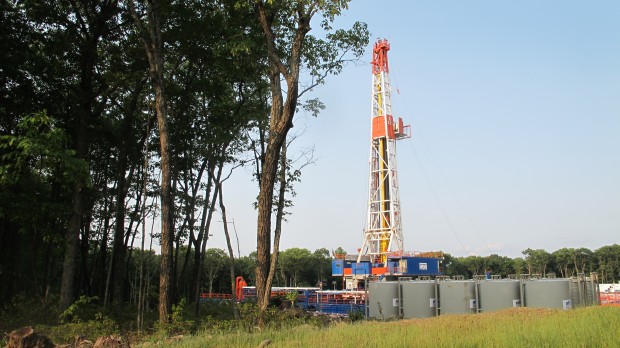GOP lawmaker reintroduces controversial royalties bill
-
Marie Cusick
Representative Garth Everett has called himself as a “sometimes marathoner” who is in it for the long haul.Ā He’s now on his third attempt to pass legislation ensuring Pennsylvania landowners are paid a minimum royalty for natural gas development.
On Thursday Everett (R- Lycoming) introduced House Bill 557– an effort to address complaints that some gas companies are cheating leaseholders out of money.Ā Mineral owners have accused drillers of abuses including charging exorbitant fees, misreporting the sale price of gas and volume produced, and failing to adhere to lease language.
Everett’s earlier bills cleared House committees twice, but he blames the GOP leadership for blocking a vote.
āI never had any doubt it would easily receive enough votes on the floor,” he says.
He hopes this year will be different.
“Sometimes leadership will run a bill they might not personally agree with, if thereās enough of the caucus and enough people in the legislature that want the bill run.ā
The royalty disputes have led to numerous lawsuits, including one from the state Attorney General’s Office. The issue has alsoĀ affected leases on public forest land. Last year, following an audit, the Commonwealth recovered more than $1.3 million.
While Everett’s previous bills died in the House, theĀ state Senate has also attempted to to take on the issue. It has twice approved a pair of bills which would give more protections to royalty owners. Ā Sen. Gene Yaw (R-Bradford) is the prime sponsor.Ā He says neither measure is controversial, and blames the House for the yearslong delay.
āThey should go through, and could be immediately available to help people,” says Yaw.
One billĀ gives landowners the ability to inspect gas companiesā records, to verify proper payment. The other prohibits drillers from retaliating against people who question their royalty payments. Neither measure achieves what advocates really want–which is to clarify a 1979 state law that sets the legal minimum royalty at 12.5 percent. They’ve been lobbying much harder for Everett’s bills.
“People will criticize that it doesnāt do enough,” Yaw says of his remedies. “Okay, well itās like saying, āI only got two meals today. I wanted three.ā So does that mean youāre going to turn down everything?ā
Rep. John Maher (R- Allegheny) takes credit for holding up Yaw’s bills.
“It’s fair to say I stalled them,” he says. “I think Senator Yaw’s ideas are good. But my concern last session was if those bills went into law, there can be tendency around the legislature to say, ‘Oh we’ve already addressed that issue.’ His ideas are good, but they’re not enough.”
Maher says Pennsylvania’s 1979 minimum royalty law was designed to protect small property owners.
“And it’s not working,” he says.
Steve Miskin, a spokesman for GOP House Majority Leader Dave Reed (R- Indiana) says the leadership is trying to reach a consensus.
“There were a number of very lively caucus discussions on this issue last fall,” he says. “We are all trying to come up with some kind of legislative solution.”
The natural gas industry has lobbied against Everett’s previous two bills, arguing they were an unconstitutional attempt to rewrite contracts. They say any disputes between landowners and companies should be left to the courts.

















